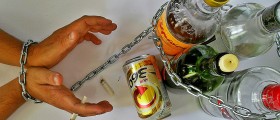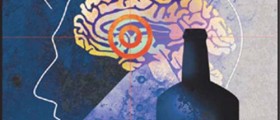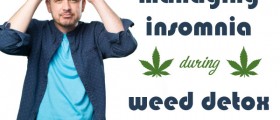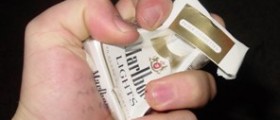
A person goes through the numerous symptoms and changes when prolonged heavy alcohol consumption suddenly stops. The most common symptoms include anxiety, insomnia and trembling. All the symptoms associated with alcohol withdrawal may vary depending on the addiction and the mood of an individual person.
The intensity of the aforementioned symptoms largely depends on the intensity of a person’s alcohol addiction. Alcohol has very powerful hypnotic, suppressant and sedative properties and it gradually affects the brain and the nervous system. During the long exposure to these properties the brain produces significantly larger amounts of serotonin in order to get adjusted. Because of alcohol’s adrenaline-like stimulating activities, withdrawal symptoms kick in once the person quits drinking. The excessive stimulation of the brain is what makes it difficult for people to quit the harmful habit.
After a person quits the dangerous habit, the brain actually needs some time in order to readjust to the normal functioning. Trembling and shaking is one of the most common symptoms and it occurs a few hours after the ingestion of alcohol is stopped. Trembling is usually combined with anxiety, difficult breathing, irritability, increased blood pressure and insomnia. Alcohol hallucinosis is a condition when a person starts seeing imaginary multiple small moving objects such as crawling insects, and it is actually a part of the second phase of alcohol withdrawal. Withdrawal seizures require immediate medical attention because they can even be fatal in certain cases. Delirium tremens is a symptom which is very serious and severe in its nature and it can be described in extreme shifts in body temperature, blood circulation and breathing. Due to the abnormal shifts in the blood circulation, sometimes the cerebral blood supply can be temporarily obstructed and it also causes dangerous and severe cases of dehydration. It is not common for delirium tremens to be associated with irrational behavior, unconsciousness and confusion.
All of the symptoms described can be discarded or reduced if treated with appropriate medication and psychotherapy. Thiamin combined with an individually tailored diet can be of great help for those who suffer from minor effects of alcohol withdrawal symptoms. Those who are affected more severely need the attention of experts and sometimes they need to be given Valium in order to lessen the effects of alcohol withdrawal. Of all the symptoms, delirium tremens is the rarest. Sometimes the treatment requires the use of tranquilizers and sedatives and in most cases it includes various rehabilitation programs.

















Your thoughts on this
Loading...